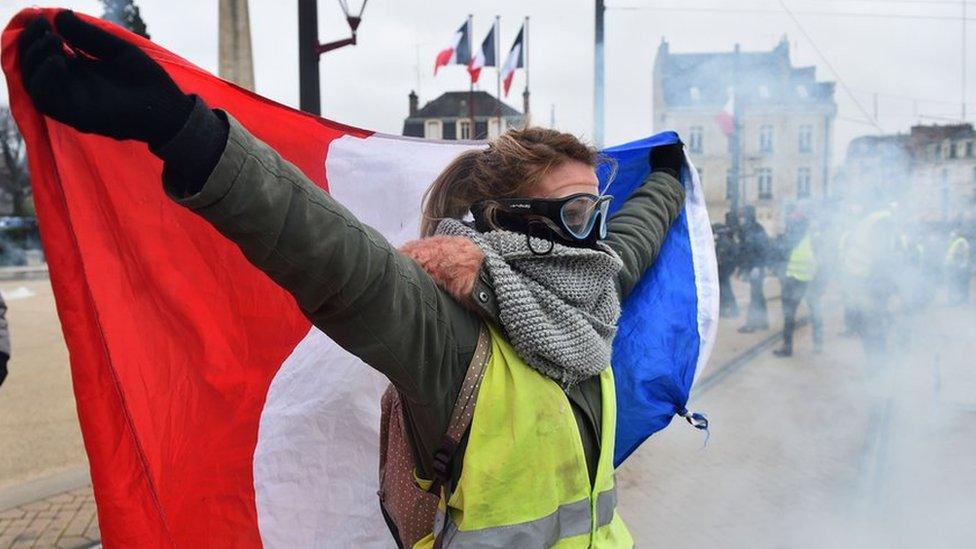Yellow-vest protests: France warns Italy Deputy PM Di Maio
- Published
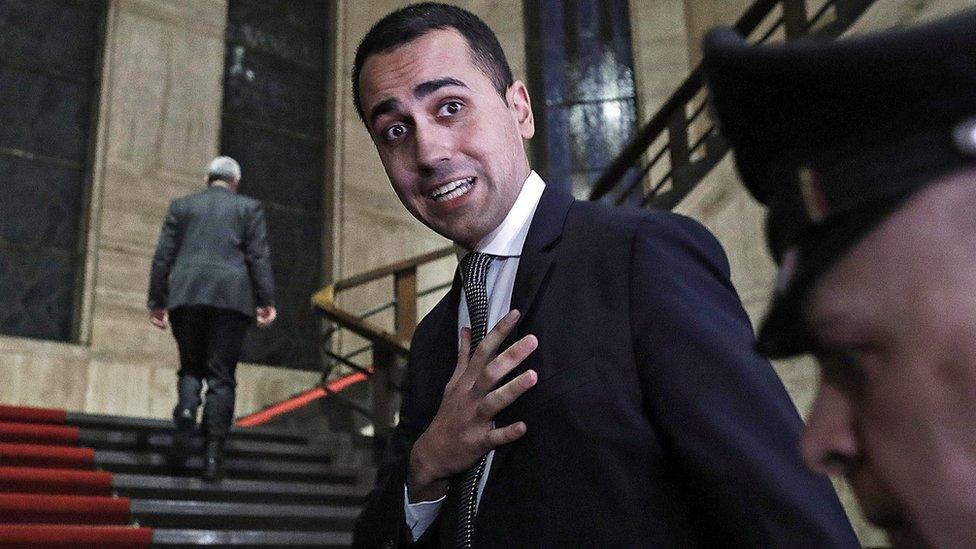
It is not the first time Luigi Di Maio has clashed with the French government
France has warned Italian Deputy Prime Minister Luigi Di Maio not to interfere in the country's politics, after he met French "yellow-vest" protesters.
"This new provocation is unacceptable between neighbouring countries and partners at the heart of the EU," the French foreign ministry said.
Mr Di Maio, leader of the populist Five Star Movement, met two leaders of the anti-government protests on Tuesday.
"The wind of change has crossed the Alps," Mr Di Maio tweeted (in Italian)., external
He also posted a picture of himself with "yellow-vest" leader Christophe Chalençon and Ingrid Levavasseur, who is heading a "yellow-vest" (gilets jaunes) list for elections to the European Parliament in May.
Allow X content?
This article contains content provided by X. We ask for your permission before anything is loaded, as they may be using cookies and other technologies. You may want to read X’s cookie policy, external and privacy policy, external before accepting. To view this content choose ‘accept and continue’.
The meeting took place near Paris.
Relations between France and Italy have been tense since the Five Star Movement (M5S) and right-wing League parties came to power in Italy in June 2018.
In January, France summoned Italy's ambassador after Mr Di Maio said Paris had "never stopped colonising tens of African states".
Italy's populist leadership has also recently clashed with France on issues such as migration protests and culture.
Who are the 'gilets jaunes'?
The "gilets jaunes" protests against fuel tax hikes began last November, saying the measure hurt those who live in remote areas of France and depend on cars.
France fuel protests: Who are the people in the yellow vests?
The "gilets jaunes" derive their name from the high-visibility vests they wear - and which French motorists are required by law to carry in their vehicles.
But since their first marches - and the government's subsequent U-turn on fuel taxes - their demands have expanded to boosting people's purchasing power and allowing popular referendums.
In December, French President Emmanuel Macron said he was "partly responsible" for the "insufficient response" to the protests that have rocked the country.
- Published22 January 2019
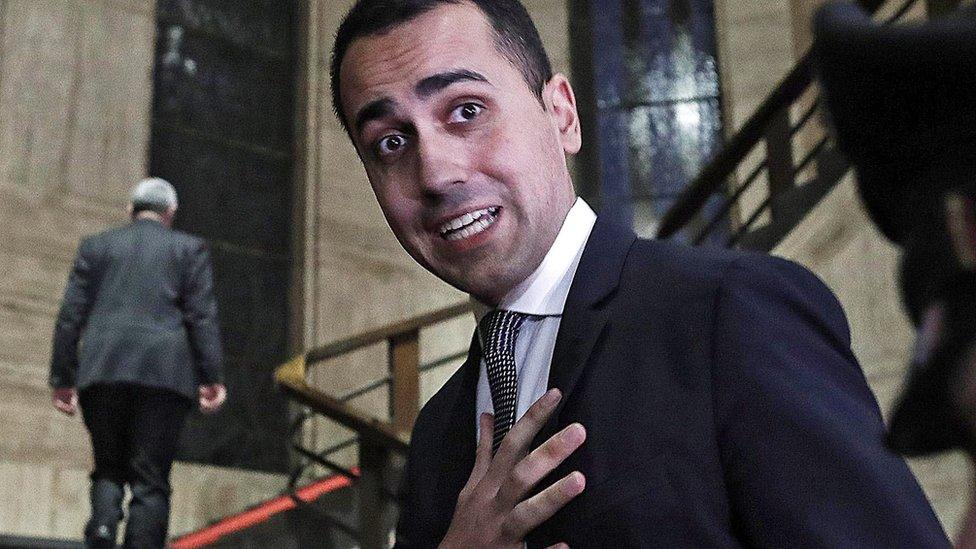
- Published1 June 2018
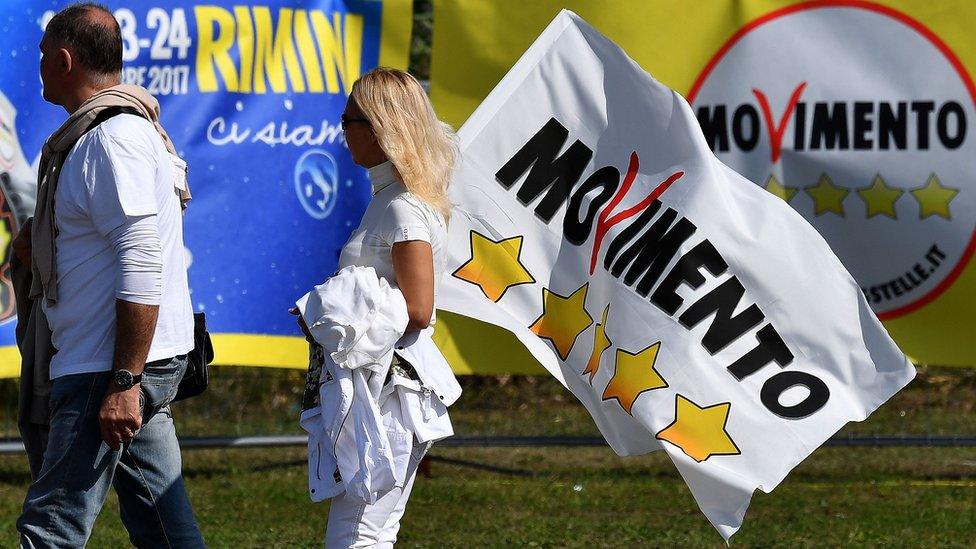
- Published2 February 2019
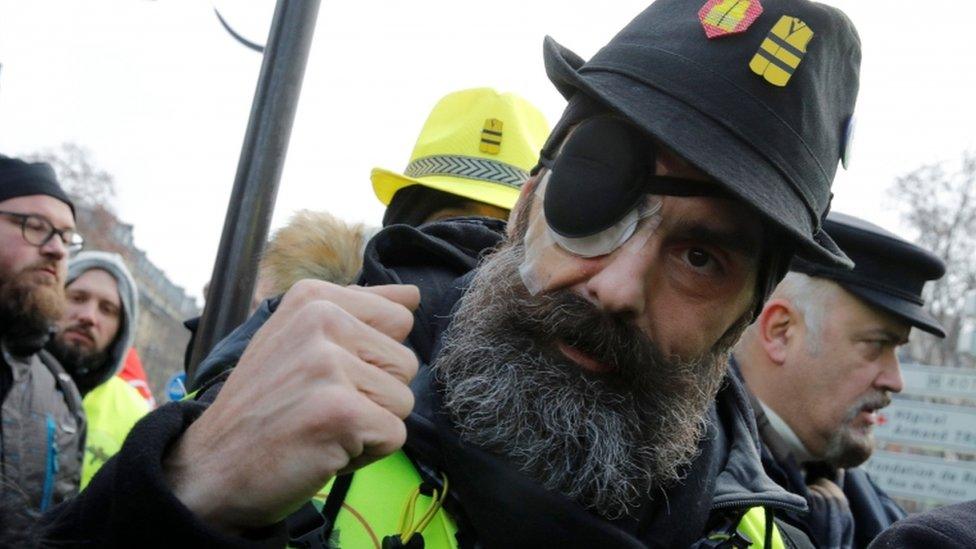
- Published15 January 2019
